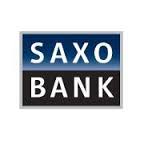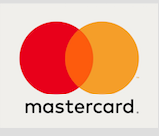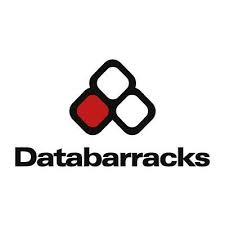Published

Amy Matthews
Resource manager at Vibrant Inc.
You might be new to using personal finance software and wish sees the benefits that such software management can provide to help you organize your money. see more
- 01:00 am

• EQT VIII and EQT Ventures, in partnership with Saxo Payments Banking Circle’s founders and other co-investors, to acquire Saxo Payments Banking Circle
• Saxo Payments Banking Circle’s unique banking platform enables cross-border payments with reduced complexity, time and cost
• EQT to support Saxo Payments Banking Circle’s continued growth by leveraging the entire EQT platform, including around 25 years of experience in future-proofing companies as well as accelerating hyper-growth businesses, deep TMT expertise, and a global industrial network
The EQT VIII fund (“EQT VIII”) and EQT Ventures fund (“EQT Ventures”) (jointly “EQT”) have together with company founders and other co-investors entered into an agreement to acquire Saxo Payments Banking Circle (“Banking Circle” or “the company”) from Saxo Bank A/S and other minority owners. EQT VIII will have the majority ownership.
Founded in 2013, Banking Circle is a next-generation provider of mission-critical infrastructure for online cross-border payments. Today, Banking Circle is processing around EUR 60 billion run-rate annual payment volumes for several high-profile customers using direct clearing access through partnerships with blue-chip partner banks. The global cross-border payments market is driven by an increasing need for faster and less costly payments, compliance, and transparency, resulting in one of the fastest growing segments within the payments ecosystem.
EQT will support the continued acceleration of Banking Circle’s growth strategy, in current and new geographies, as well as the expansion of the product portfolio. Through EQT, Banking Circle will get access to both operational and financial resources to drive innovation and investments in technology development and talent acquisition. The company will also be able to leverage the entire EQT platform, including deep TMT sector expertise, local presence and EQT’s global network of Industrial Advisors. Banking Circle’s current management team, including founders and co-CEOs Anders la Cour and Laust Bertelsen, will continue to lead the organization, building on a strong track record of growth.
“We are proud of Saxo Payments Banking Circle’s development and growth. As investor and incubator, we have supported the company with our core competencies in foreign exchange as well as developing and managing global fintech solutions. It is not an easy task to build fintech solutions that create value and are long-term sustainable, but the company has done what few succeed in. We see EQT as the ideal partner for the next part of the journey and we are confident that Saxo Payments Banking Circle will thrive and continue its impressive growth trajectory. We look forward to continuing a close collaboration with the company and EQT, leveraging our technology and market access”, says Kim Fournais, founder and CEO of Saxo Bank.
Anders la Cour and Laust Bertelsen, co-CEOs at Banking Circle comment: “We would like to thank Saxo Bank for a great partnership and look forward to a close collaboration in the years to come. We are excited to partner with EQT. With their support, we will be ideally positioned to continue innovating to serve our customers even better and continue our rapid growth.”
“We have followed Banking Circle for several years and are impressed by the company's management team and unique innovation capabilities. Saxo Bank and Banking Circle’s management team have built an innovative, secure, and highly automated platform to make competitive, faster, and more transparent payments across borders. EQT is looking forward to supporting Banking Circle and the management team on their continued growth journey and in building a leading global payments infrastructure player. The cooperation between EQT VIII and EQT Ventures enables Banking Circle to benefit from the full EQT platform”, says Mads Ditlevsen, Responsible Deal Partner and Partner at EQT Partners, Investment Advisor to the majority owner EQT VIII.
“We’re excited to partner with the entrepreneurs behind Banking Circle and support them in building the next generation infrastructure for cross-border payments,” says Hjalmar Winbladh, Partner at EQT Partners and Investment Advisor to EQT Ventures. “Cross-border payments is a large and rapidly growing market dominated by traditional players. Banking Circle has built a disruptive solution with a strong value proposition. The customer feedback is excellent and the company’s traction is evident looking at the triple digit growth of the business.”
Related News
- 07:00 am

encompass corporation (“encompass”), a fast-growing global provider of robotically automated Know Your Customer (KYC) solutions, today announced the appointment of Ed Lloyd, a long-term veteran of the compliance technology industry, to the position of Executive Vice President, Global Sales.
Ed joins encompass from Fonetic, where he led sales and pre-sales for the Surveillance Solutions business, and will lead the encompass direct sales organisation globally. Prior to Fonetic, Ed held executive positions at a number of high-growth companies in the KYC, compliance and regulatory space.
Ed joins encompass at an exciting stage in the company’s development, following the announcement earlier this year that it had launched operations in Hong Kong to support growth across East and South East Asia in response to increased demand.
“We are delighted to welcome Ed to the encompass executive team”, said Wayne Johnson, encompass co-founder and CEO. “Ed brings with him a deep understanding of the challenges our customers face in their efforts to comply with an increasingly stringent and complex regulatory landscape, and the critical role of disruptive technology in overcoming these.”
“encompass is now recognised as one of the leading KYC solutions in a market ripe for automation”, Ed Lloyd observed.“I’m excited to join at a time of fast growth and to continue to expand our customer base across our global markets, helping regulated firms to reduce the burden of KYC and improve consistency and efficiency.”
encompass customers include financial institutions, legal and professional services and other companies in high-risk, regulated industries.
Related News
- 06:00 am

Profile Software, an international financial solutions provider, announced today the successful implementation of RiskAvert, its advanced regulatory capital calculation, liquidity risk and XBRL validation and reporting platform, at IBG (Investment Bank of Greece) and the successful completion of the recent XBRL submission exercise to the Bank of Greece (EBA Reporting framework 2.7.0.1).
IBG is a leader in investment banking and brokerage services, holding top ranks in mergers and acquisitions, IPOs and SPOs as well as underwriting and debt structuring. Moreover IBG consistently occupies top positions among Greek brokerage houses in transaction volumes and is an undisputed leader in the local derivatives market. Since its establishment in 2000, IBG has transformed and expanded. From 2006 to 2012, IBG was a leader on the Athens Exchange in terms of volume, serving over 250,000 individual, business and institutional investor accounts. The Bank continues to retain its high rank as it expands into other areas of financial business.
The bank selected RiskAvert to address its compliance requirements that pertain to the implementation of a robust efficient and automated risk management platform to manage the calculation, group consolidation and reporting of credit, market, operational and liquidity risk. RiskAvert is continuously being enhanced to incorporate the latest regulatory requirements that enable banks to comply, automate and advance their Risk Management processes.
By deploying Profile’s RiskAvert, IBG is utilising the automated and rich functionality of the system, along with the support of Profile’s team, for XBRL validation and conversion processes. The solution fully satisfies XBRL taxonomies for all regulatory elements under the current EBA reporting framework and ensures comprehensive accommodation of COREP, FINREP (IFRS & GAAP), IP Losses, Large Exposures, Leverage, Asset Encumbrance, Additional Monitoring Tools, Liquidity, Funding plans and supervisory benchmarking portfolios.
Profile’s team has long-standing experience and a proven track record in efficiently delivering highly demanding, compliance-focused projects in SE Europe on time and on budget.
Related News
- 09:00 am

Digital money transfer company Azimo has added 10 new countries to its service for customers in Nordic countries.
The new service delivers transfers to recipients’ bank accounts in local currency. With low rates, fast delivery times, and 100% coverage for all bank accounts, Azimo’s service to these 10 new countries is now the best in the market.
Nearly 3.5 million foreigners and children of foreign parents live in Denmark, Norway and Sweden; they send more than $7 billion abroad each year.
Azimo’s number and volume of transfers from Denmark, Norway and Sweden have increased by more than 150% in the last twelve months. Other important countries have also recently been added to its service, including the Philippines, Nigeria and Poland.
The company completed a $20 million fundraising round, led by Rakuten Capital, in May, which is being used to support the rapid growth of Azimo’s business in the Nordic countries and across the rest of Europe.
Michael Kent, CEO of Azimo, commented: “We already serve customers in Denmark, Norway and Sweden. We’re now extending our service to more countries, allowing more customers to send money around the world at a much better rate.”
Related News
- 05:00 am

With new EU regulations coming into place next September, Mastercard is predicting a significant increase in the use of biometric technology to authenticate who is paying.
With regards to card payments, currently just 1-2% per cent of online transactions require cardholder authentication to complete a transaction (mostly likely using a password), but this is set to rise to up to 25% or 1 in 4 payments from next autumn.
The European rules aim to tackle online fraud, by increasing the number of transactions subject to two factors of authentication by the payer, known as “Strong Customer Authentication” (SCA).
Authentication for online payments and account access will be based on the use of two or more different factors in the future:
- Something you know, such as a password
- Something you have, such as a phone, or card
- Something you are, such as a fingerprint
This will mostly impact card payments made over the internet – be it a desktop or mobile purchase. It will also apply to some contactless transactions, as a periodic check to ensure the card is being used by its rightful owner. However, in store chip and pin transactions are already complaint and use two factors.
Although the heightened security measures are designed to protect consumers and businesses from being defrauded, Mastercard is working with banks and the rest of the industry to ensure they are implemented without ‘disrupting’ the convenience of payments for consumers.
Ajay Bhalla, President Global Enterprise Risk and Security, Mastercard said: “The use of passwords to authenticate someone is woefully outdated, with consumers forgetting them and retailers facing abandoned shopping baskets. In payments technology this is something we’re closing in on as we move from cash to card, password to thumbprint, and beyond to innovative technologies such as artificial intelligence. It’s far easier to authenticate with a thumbprint or a selfie, and it’s safer too.”
Mastercard has been leading the advancement of biometric technology in payments for years with a focus on improving both consumer experience and security online and offline.
Identity Check is one such example. This is an authentication solution that enables individuals to use biometric identifiers, such as fingerprint, iris and facial recognition to verify their identity using a mobile device during online shopping and banking activities. This solution dramatically speeds up the digital checkout time, improves security and reduces cart abandonment rates.
Mastercard is also testing a next generation biometric payment card, with an in-built fingerprint sensor. The card is being piloted in South Africa and can be used to verify in-store purchases without the need to upgrade existing payment terminals.
With this approach, Mastercard will help banks not only to comply with requirements set out in the new PSD2 legislation, but also to go further in optimising the checkout experience of their customers.
Related News

Tim Willis
Director of EMEA Corporate Security at Dataminr
The aftershocks following TSB’s high see more
- 03:00 am

Switzerland’s stock exchange – owned and managed by SIX – today announced that it is building a fully integrated trading, settlement and custody infrastructure for digital assets. SIX is regulated as an operator of Financial Market Infrastructure (FMI) by Swiss Authorities, FINMA and the Swiss National Bank, and intends that the planned ‘digital asset ecosystem’ –SIX Digital Exchange (“SDX”) – will enjoy the same standard of oversight and regulation. It will be the first market infrastructure in the world to offer a fully integrated end-to-end trading, settlement and custody service for digital assets. The service will provide a safe environment for issuing and trading digital assets, and enable the tokenization of existing securities and non-bankable assets to make previously untradeable assets tradeable. Following an agile approach to meet the needs of today’s dynamic environment, the first services will be rolled out in the first half of 2019.
The service will be mainly based on Distributed Ledger Technology (DLT). The implementation approach will provide a bridge for clients from the traditional to the new world, in a timeframe, which allows clients to choose for themselves how, and when to avail themselves of the new opportunities the new ecosystem provides.
According to Thomas Zeeb, Head, Securities & Exchanges, SIX, “The digital space currently faces a number of key challenges. These include the absence of regulation that ensures official safety, security, stability, transparency and accountability – all of which contribute to a lack of trust. The challenge is less in the trading of assets but rather in the custody and asset servicing, including asset safety. Do you adopt a model with many sub-custodians, including inefficient interfaces and with inherent risks, or do you go with a recognised and regulated infrastructure provider who provides all steps of the chain in an integrated and secure model? We believe that the latter has significant value.
As the stock exchange infrastructure for Switzerland, we know what it takes to build and run mission-critical and scalable, systemically important services.”
According to Jos Dijsselhof, CEO, SIX, “This is the beginning of a new era for capital markets infrastructures. For us it is abundantly clear that much of what is going on in the digital space is here to stay and will define the future of our industry. The financial industry now needs to bridge the gap between traditional financial services and digital communities. This is the role that we at SIX can play. SIX is in a unique position in that it runs the entire securities and payments value chain for Switzerland already, and is ideally positioned to create the digital ecosystem for the future, allowing existing and new market participants to develop their business models for the opportunities available in this new environment. These are strengths that we can bring to the digital space and contribute meaningfully to what is one of the most innovative and dynamic environments of our time.”
Related News

Caroline McClelland
Marketing Manager at Waracle Mobile App Developers UK
Technology is changing the transport sector when it comes to high-speed trains and electric buses. see more
- 08:00 am

Business continuity and disaster recovery provider, Databarracks has been named winner of the Barclays Developing Resilience Award at the Business in the Community’s 2018 Annual Responsible Business Gala in London, attended by nearly 1000 business leaders and influencers and hosted by Sir Lenny Henry.
The event was the culmination of the 2018 Responsible Business Awards, run by Business in the Community – The Prince’s Responsible Business Network - to celebrate the innovative ways that businesses in the UK and abroad are making a sustained difference and transforming communities.
Databarracks was applauded for its ongoing commitment to improving IT resilience amongst small and medium sized businesses (SMEs). At the heart of this is its jargon-free podcast offering listeners insight into real life experiences from actual incidents. The episodes cover a range of subjects relating to IT and wider business continuity issues, as well as advice that small businesses can take-on-board to improve resilience.
Additionally, Databarracks has also published a series of free online tools designed to help prevent business disruption which are now used by more than 3,000 people a year. One of these – it’s tabletop testing tool – is a simulator that walks businesses through example recoveries and offers advice at the end of each scenario.
Commenting on the award Peter Groucutt, managing director of Databarracks said: “We are thrilled to win this award. Given the standards of the other finalists in the Barclays Developing Resilience category, the award is a testament to our employees’ hard work and enthusiasm in improving resilience for SMEs.
“We view it as our responsibility to share our knowledge with organisations that might otherwise be deterred from continuity planning. We want businesses of all sizes to know that business continuity and resiliency can be achieved through simple planning, common sense and effective organisational management. This is at the core of our educational projects.”
Amanda Mackenzie, chief executive at Business in the Community, said: “Huge congratulations to Databarracks on their success in this year’s Responsible Business Awards. They are putting responsible business practices at the core of their company and are helping to create our mission to create healthy communities with successful businesses at their heart. We know they will now use this award to inspire and teach others. They do Britain plc proud with their leadership on the responsible business agenda.”
The Business in the Community Responsible Business Awards celebrate the very best in responsible business, and aim to inspire and enlighten the world with the innovative business stories that are at the heart of every community, and to highlight the untold stories of businesses that are driving positive changes in their operations both nationally, and internationally.









